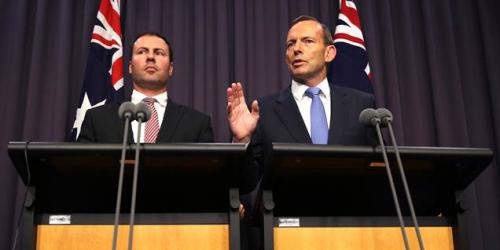Remove red tape: start with FBT
EXTRA: THE Institute of Public Accountants (IPA) reckons fringe benefits tax is the most burdensome item of compliance in front of Australian small business today.
FBT’s overhaul is both warranted and overdue, according to the IPA – but it was overlooked in the recent Federal Budget. 
“Look no further than FBT if the government wants to make some inroads to its commitment to reducing regulatory red tape,” IPA senior tax advisor, Tony Greco said.
“FBT has the unenviable title of having the highest compliance cost of any tax. It places a significant compliance burden on small business operators.
“The complexity of the FBT system applies to all small business employer groups, including the not-for-profit sector. We are talking about a lot of entities trying to navigate a quagmire of rules to safely negotiate ways to comply with these tax rules.
“The IPA believes that shifting FBT from employers to employees would provide a more equitable solution to many of the current problems. Taxing fringe benefits at the employee level has the potential to deliver greater neutrality in the treatment of cash and non-cash remuneration while reducing the compliance costs for both employers and employees.
“The Henry Review supports such a proposal to simplify the current rules and provide for more transparency. There are also a number of anomalies in the FBT rules which have been allowed to exist for too long and should be addressed by any responsible government.
“The use of uncapped access to FBT exemptions for restaurant meals and the hire of entertainment facilities for private purposes are highly discriminatory and need to be immediately reined in on equity grounds,” Mr Greco said.
“The exploitation of these uncapped concessions offends the principle of fairness. For example, allowing someone to salary sacrifice a $40,000 wedding from pre-tax income to avoid a significant amount of tax is difficult to justify.
“If the incidence of FBT is transferred to employees, then an alternative mechanism for funding FBT tax concessions will need to be considered. The funding alternatives proposed by the Not-for-Profit Sector Tax Concession Working Group have merit as they offer more transparent incentives for attracting and retaining talent in the not-for-profit sector.
“These alternatives need to be considered in the interests of simplicity, fairness and transparency,” Mr Greco said.
The IPA made this recommendation as part of its pre-Budget submission.
ends

 How to resolve AdBlock issue?
How to resolve AdBlock issue? 




 THE Federal Government is making amendments to the Personal Property Securities Act (PPSA) to help address anomalies over certain leases and what qualifies as a ‘motor vehicle’.
THE Federal Government is making amendments to the Personal Property Securities Act (PPSA) to help address anomalies over certain leases and what qualifies as a ‘motor vehicle’.